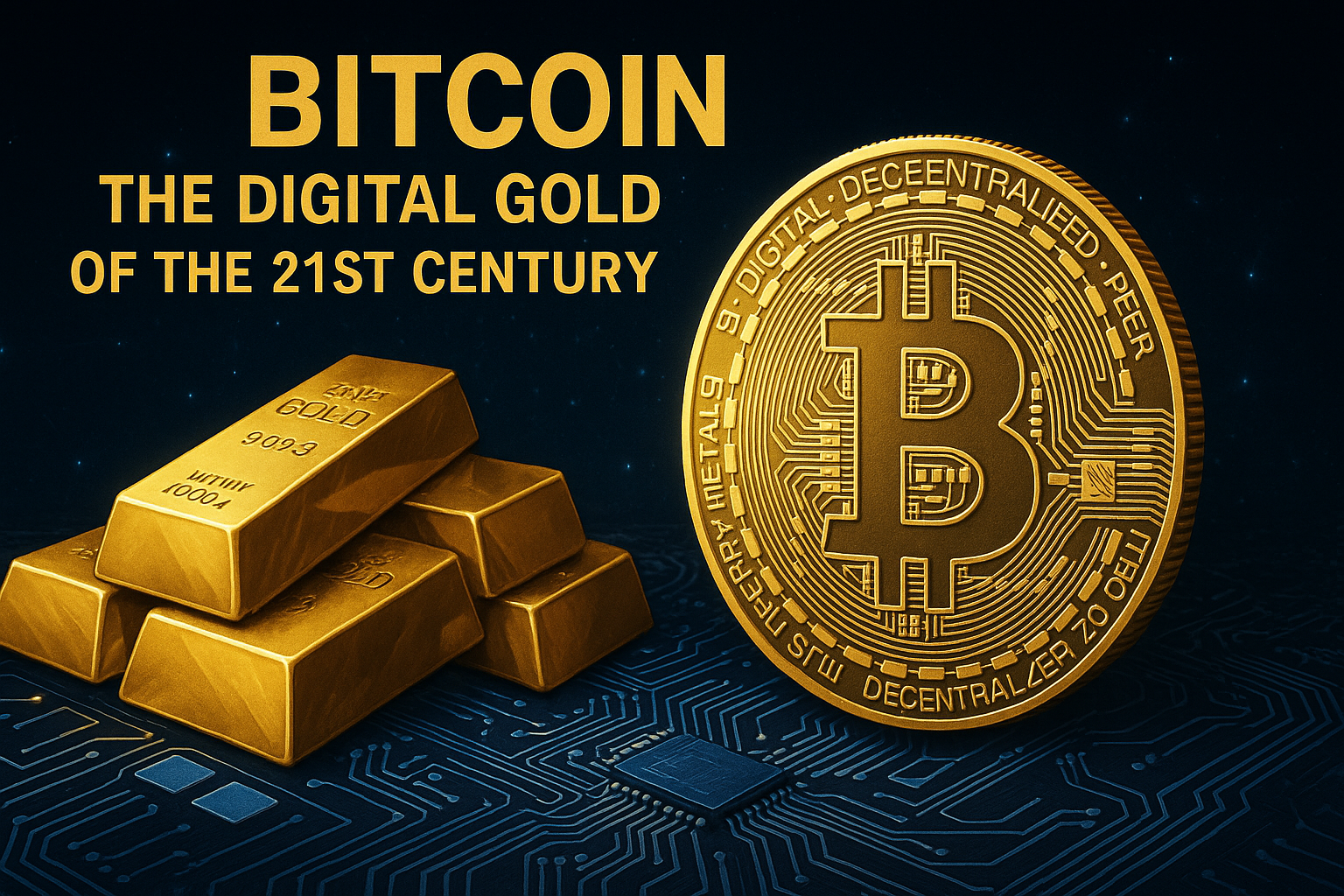Over the past decade, Bitcoin has transformed from a fringe concept into a global financial phenomenon. Often referred to as digital gold, Bitcoin represents a new era of decentralized finance and has sparked debates, innovations, and investments around the world. But what exactly is Bitcoin, and why does it matter?
What Is Bitcoin?
Bitcoin is a digital currency created in 2009 by an anonymous person (or group) known as Satoshi Nakamoto. Unlike traditional currencies issued by governments, Bitcoin operates on a decentralized network using blockchain technology a public, tamper-resistant ledger that records every transaction.
This means there is no central authority controlling Bitcoin. Instead, the network is maintained by miners who validate transactions and secure the system through cryptographic algorithms.
Why Is Bitcoin Important?
1. Decentralization: One of Bitcoin’s core principles is removing intermediaries from the financial system. This empowers individuals to control their own money without relying on banks or governments.
2. Scarcity: There will only ever be 21 million Bitcoins. This fixed supply has led many to view Bitcoin as a hedge against inflation, similar to gold.
3. Transparency and Security: Every Bitcoin transaction is recorded on the blockchain, making the system transparent and virtually immutable.
4. Global Accessibility: Bitcoin can be sent and received across borders in minutes, offering financial inclusion to millions who lack access to traditional banking.
Bitcoin as an Investment
While Bitcoin is volatile, it has delivered impressive returns over the years. Many investors see it as a long-term store of value, especially in uncertain economic times. However, it’s crucial to understand the risks and not invest more than one can afford to lose.
Moreover, Bitcoin’s fixed supply of 21 million coins enhances its appeal as a hedge against inflation. Unlike fiat currencies, which can be printed in unlimited quantities, Bitcoin’s scarcity makes it comparable to precious metals like gold. This characteristic has attracted institutional investors and corporations seeking to diversify their portfolios and protect their assets from the devaluation of traditional currencies.
Challenges and Future Outlook
Bitcoin still faces regulatory scrutiny, environmental concerns due to energy consumption, and competition from other cryptocurrencies. Yet, it continues to evolve, with growing adoption from institutions, countries (like El Salvador), and everyday users.
Whether you see it as a revolutionary technology, a speculative asset, or a monetary experiment, one thing is clear: Bitcoin is here to stay and it’s reshaping the future of finance.







